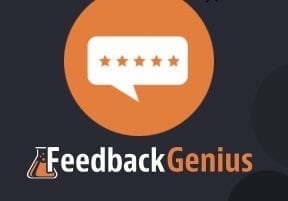
Business intelligence tools can organize and analyze data from many sources to help owners and managers with critical decisions. Basic intelligence tools — Google Analytics, native analytics from an ecommerce platform — are free, but they often are time-consuming compared to premium alternatives.
A business intelligence tool can provide helpful data to make critical, daily decisions. There are many such tools to choose from, but knowing which one is right for your business can be tricky.
Certainly the tool should accommodate your data sources. It needs to fit your budget. And the functionality of the tool must match your preference for visualization, custom formulas, and drill-downs.
In this post, I’ll list popular business intelligence tools that I’m familiar with and offer my perspective on each.
Traditional Tools
Domo goes beyond ecommerce reporting. It includes marketing, inventory management, and sales reporting — all in one place. Domo integrates with over 1,000 data sources, making it one of the more powerful options. Pricing is based on usage, including data storage, data refresh rates, volume of data queries, and number of users. Alternatives to Domo include Tableau, Datorama, and Oracle Business Intelligence.
Looker provides beautiful visualization and an easy setup process. Looker’s integrations are not as extensive as other tools on this list. It does not, for example, integrate with Magento or any accounting platform. Moreover, many of Looker’s integrations are via third-party tools such as Stitch or Supermetrics. This could add cost and pose an additional data-breach risk. However, Looker offers advanced analytical capabilities, and the price, at $3,000 per year, fits most medium-size businesses. Alternatives to Looker include Power BI from Microsoft and Sisense.
Niche Tools
Magento Business Intelligence is handy for Magento users. It can be implemented on-premise or in the cloud. Built-in integrations include Google Ads, Google Analytics, Facebook Ads, Mailchimp, Pardot, QuickBooks, NetSuite, and Shopify, as well as Segment (see below) and custom databases. Magento BI does not integrate with social media such as Twitter and Facebook. Pricing for Magento BI starts at $500 per month.
Metrilo specializes in ecommerce analysis, such as tracking visitor activity. It integrates with many ecommerce platforms, including Magento, Shopify, and WooCommerce, as well as custom integrations. Pricing for Metrilo starts at $120 per month.
Segment is not a business intelligence tool. It connects multiple data sources and platforms to group and filter as needed. Segment is helpful for businesses with sophisticated data needs from many data sources. Segment users connect to an intelligence tool for visualization. But for analysis, Segment is powerful. A developer version of Segment is free. Otherwise, pricing starts at $120 per month for a “team” version.
DashThis is strictly for marketing and web analytics. It’s easy to integrate and operate. It’s a good starting point for companies that are new to business intelligence tools. DashThis is affordable at $33 per month.
SellerApp is for Amazon sellers. It organizes key Amazon metrics, such as keyword research, product performance, page analysis, and profit optimization. Pricing for SellerApp starts at $200 per month.
Competera focuses on pricing and competitive intelligence. It’s suitable for ecommerce and brick-and-mortar merchants. Competera’s tools are customizable and primarily used by enterprise companies. Competera offers four types of plans but does not publish prices. An alternative solution for smaller companies is Prisync.
SAS is a leading platform for sophisticated enterprise-level statistical analysis and modeling. It does not easily integrate with other software and data sources. Using SAS often requires an analyst or statistician. SAS does not publish prices. An alternative for smaller companies is SAP.
Understand the Need
The key to choosing any business intelligence is understanding why you need it. Given enough time, most merchants could analyze their data for free using a combination of Google Analytics and native reporting in their ecommerce and marketing platforms. Google’s Data Studio is a free, helpful tool for visualization, although its integration options are limited beyond Google’s infrastructure.




